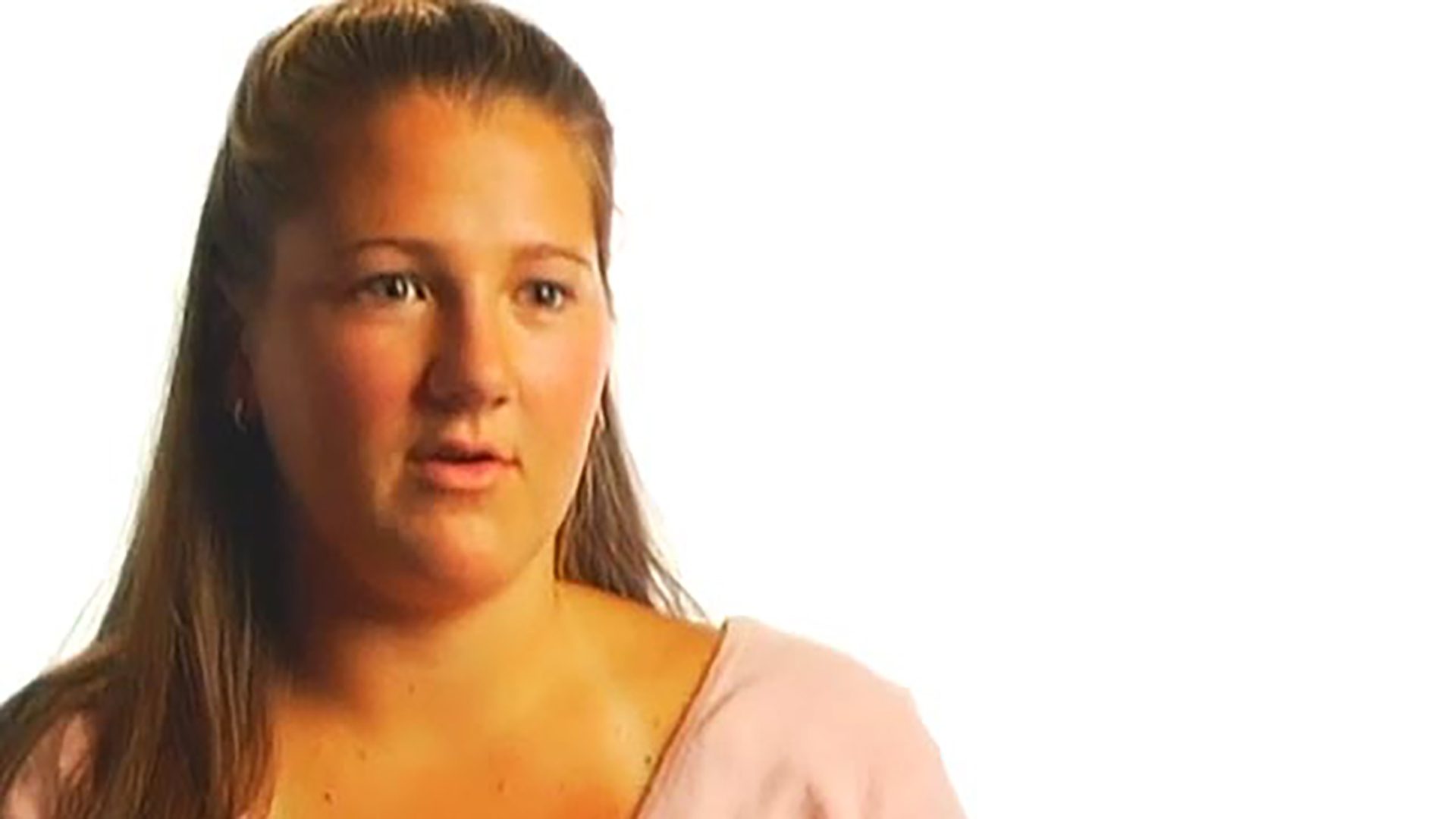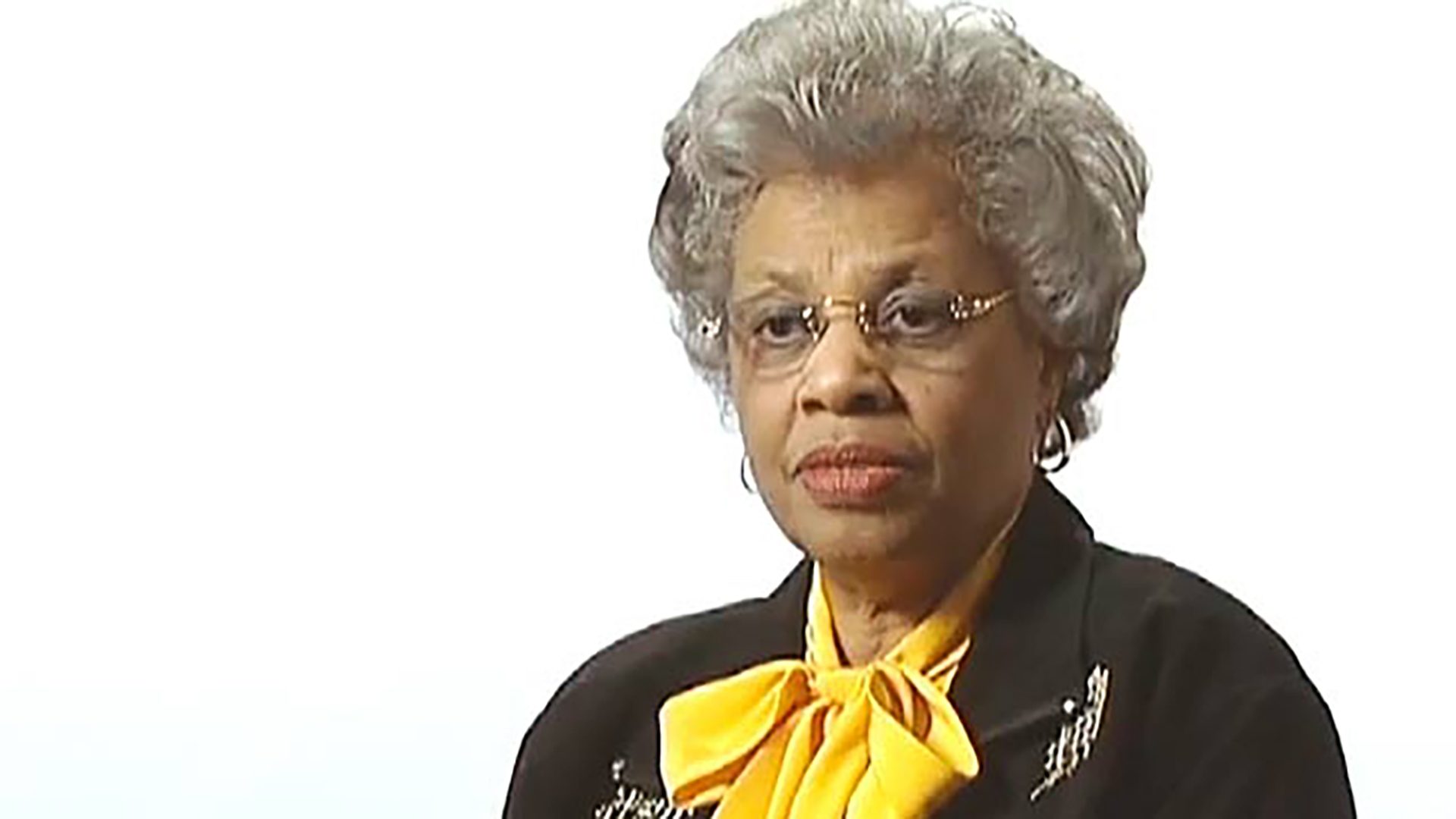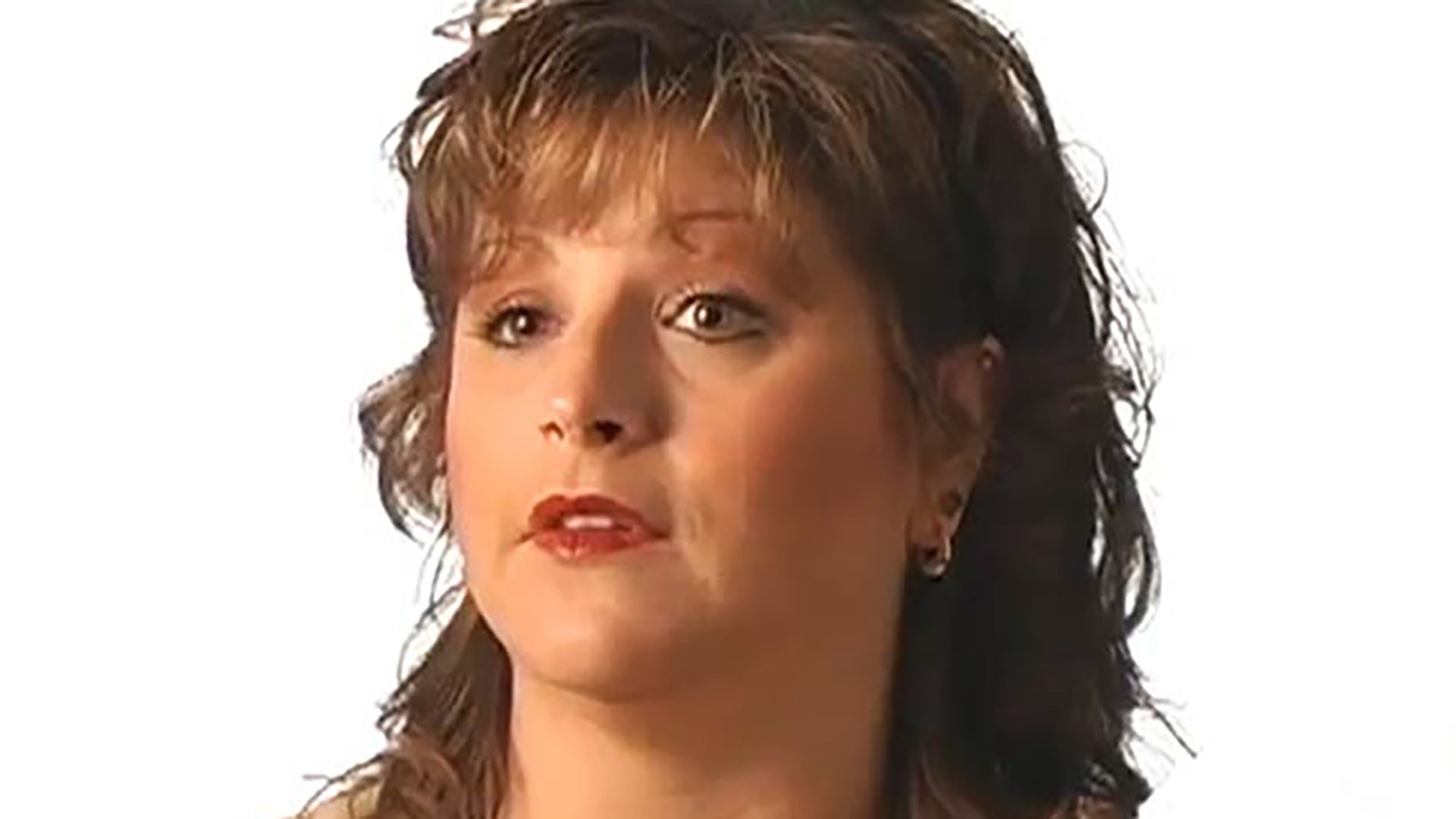Survivor Interview – Megan H.
Megan is a rhabdomyosarcoma survivor. She discusses changes to her digestive system after treatment, meeting other survivors, and family relationships.

I became a cancer survivor when I was diagnosed with rhabdomyosarcoma on July 15, 1987.
I had radiation and chemo for three years on and off. I had multiple surgeries to remove my bladder, ovaries and part of my urethra. It all ended when I was about four or five, and then I just had checkups regularly. The cancer is gone because they took out my bladder and that was what had the cancer in it.
When I was in kindergarten, I had a bowel obstruction. I was taken into the hospital, and I guess it was from all the scar tissue buildup that I’d had, so they got rid of all that. In fifth grade, I underwent surgery, where the doctor made a bladder out of part of my intestines, and that’s what I have now. That’s the closest they could get to making a bladder. Before, I had a bag on the outside of my body. Then it had gotten to the point where I needed to get something different, so we looked into our opportunities and decided to go with the Koch Pouch, which is the internal bladder. I have to empty it almost every hour, because it can’t hold as much. I can’t really feel when I need to go. My stomach actually bulges out a little bit, so that’s basically what I judge it by. I use a catheter to drain it through my bellybutton. It leaks out a little bit, and then I’ll be like, “Okay, I have to go.” Otherwise, I time it and go.
In the middle of the night, I use an alarm to wake me up every couple hours. I usually stop drinking liquids early in the night, because then I won’t have to go as much in the middle of the night. Every once in a while, if I’m lucky, I can go all night.
I get stomachaches every day. Everything I eat makes me sick to my stomach. We’re not really sure what it’s from, but I’ve talked to a lot of people recently that have had chemo, and a lot of people think it’s the side effects of chemo catching up with us now. I live off of stomach medications to make it not hurt as much. I’ve tried different diets. Some things make me feel more sick than others. I think I’m also lactose intolerant. Everybody that I’ve talked to that’s a survivor has had problems with dairy products.
I think my parents made the decision then to remove my ovaries, because I was so little. They couldn’t irradiate just my bladder, so they did radiation and chemo to everything around it, and then they took it all out. I’ve been told since I was little that I couldn’t have kids. Now, I love babysitting and I love kids. Even now that I’m 18, I still babysit. But I’m all right with it. It had to be done, so it’s something that I have to deal with. It saved my life, so I’m not gonna complain.
I have a scar all down my stomach, but in December, I’m getting reconstructive plastic surgery to get rid of it. It’s been really hard. I never even wore two-piece bathing suits until junior high, because I was so self-conscious about them. So many people, when you’re little, are mean and they don’t understand. It was really hard for me. But then I got over it. I’m fine with it. I’ve wanted to get this surgery because they had to make a shelf on my stomach so that my bladder could sit on something, but now that I’m not growing anymore, they’re gonna fix it, so it looks like a normal stomach.
I had a boyfriend my sophomore year. We dated for over a year. It was an interesting time. He had known I had had cancer, but he didn’t really know too much. Our sisters were friends, and then we started dating. But then I had to tell him everything, because I didn’t want the relationship to be fake. He knew I had cancer, so I filled him in on everything. It made us closer, and he understood a lot more.
All my good friends know about everything. I live on a floor with 40 girls, and I’ve told two people, I think. So it’s not like every single person I know, I’m gonna tell. It’s only people that I’m in a close relationship with or that will have to see me often. I’d rather have it all put out on the table before and let them ask questions, because I’m very open to talk about things, versus them feeling weird around me later. It’s hard to find the right time to tell them, but it works itself out. Something will come up and I’ll be like, “Oh, by the way…” Then I’ll explain some stuff. I don’t go through everything, but I just give them the main stuff that they’ll need to know, so that they can be supportive about it.
I just try to keep a really positive attitude and keep myself as involved as possible, because if things do come up, I try not to spend all my time just focusing on that. I try to get my friends involved or help them get me involved in other things, so that I can help get my mind off of it and keep me in really high spirits and be really positive about everything. It’s hard to be in a bad mood and be really depressed about stuff. Whatever happens, happens, so you might as well have a good time while you’re sick.
All my friends are from school, but then I do have a group of friends that I have gone to camp with. There’s a cancer camp that I go to through the American Cancer Society in San Diego. I’ve been going since I was four, so I have so many friends through that. It’s really important for me to go to those camps. I could be with other people that were going through what I was going through. It’s just a time for us to get away from our own lives and hang out together, because we have one thing in common. We’re not gonna be judged by each other. It’s a real positive atmosphere. The volunteers that do this, they’re there for the right reasons. They want to see us have a good time. Now that I’m a survivor and I’m not sick anymore, I go to support the other people. I’m actually a counselor at one of the camps for all the little kids. It’s really important to find people that you can talk to and be supportive of. It’s a hard time, and you’ve got to have people to help you and support you.
I have, at points in my life, felt guilty about myself living and others passing away. You have gone to camp with them, and then the next year, they’re not there. It’s just really hard. Initially, I do get survivor’s guilt. But I can’t help it, so I just have to deal with it in the best way and then move on and try and help somebody else or get another positive outlook on something else.
I would really encourage everybody to find a support group, because it really does help. They offer them all over the country. The camp that I go to, they have one for siblings too. Now that I’m older, I realize how much attention I had gotten when I was younger. But the siblings go through stuff, too. It’s important that they can go to a camp or a support group, too. My sisters have had mixed emotions about my cancer. They’ve gotten a lot of opportunities out of me, like going to the camp. But they do feel that my parents like me more because I’m always getting attention. My parents will do anything for me, and my sisters don’t feel like they’re getting the same attention. They’re very open about it. The older they get, the more they can talk about it. One of my sisters is a counselor with me at the camp for the kids, and the other one wants to be there when she’s old enough. They want to be involved in my life, which is very good. I’m happy about that.
Livestrong means that you’re living your life as strong as you can. You’re going out there every day, taking it one day at a time and being as strong as you can, emotionally and physically. After defeating cancer, like I have, I’m strong enough again and I can deal with all these things that life has for me. I can go out there and deal with things I have to deal with now.
My name is Megan Hickey, and I’m a 17-year rhabdomyosarcoma survivor.

